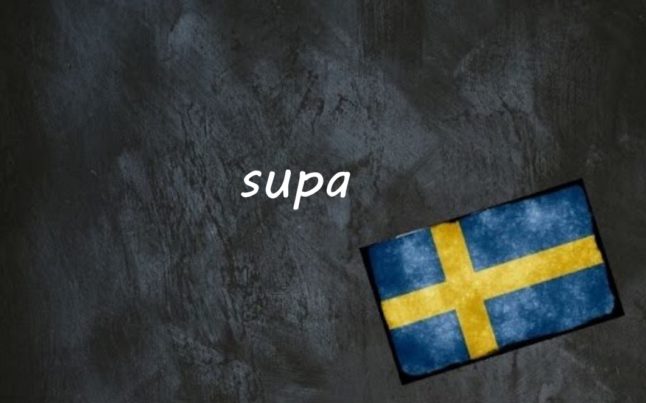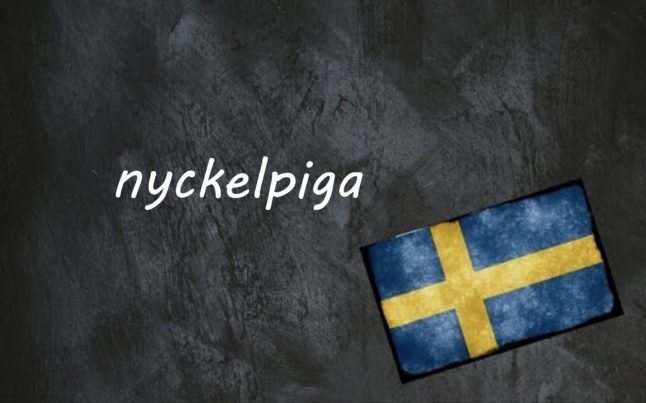Att supa is a verb that means “to drink alcohol”, usually with the connotation of drinking to excess, with the goal of getting drunk.
You usually use it without a noun object, so in conjugated form you say han super and not han super alkohol, but you’ll also hear the phrase att supa sig full which literally means “to drink oneself drunk”. En supare is a (heavy) drinker.
But the word has much more innocent origins, shared with the English word “soup” and its Swedish equivalent soppa.
In Old Norse and Old Swedish, supa meant “to drink” and was often used in particular for foods that were consumed in liquid form rather than beverages. One recipe that was popular from the 16th century onwards was ölsupa (beer soup), in which the alcoholic drink was mixed with milk, flour, and sometimes eggs or sugar.
So the verb att supa was used to mean “to eat soup”, but because of the popularity of beer soup, the term gradually came to include other alcoholic drinks too: first, those which were consumed with a spoon, and later others as well.
- Don’t miss any of our Swedish words and expressions of the day by downloading our new app (available on Apple and Android) and then selecting the Swedish Word of the Day in your Notification options via the User button
Swedish also has the noun en sup meaning “a sip” but used only with alcoholic drinks, in phrases such as att ta en sup (to take a sip, although it doesn’t have to be limited to just a sip). There are equivalent verbs in Danish and German with the same origin: zuipen and saufen.
The related word att insupa has a neutral meaning, equivalent to “to consume”, but this has become more generalised, also meaning “to breathe in” or “to absorb”, so you can insupa an atmosphere.
There’s also the term kålsupare (literally “cabbage drinker”) which isn’t used much on its own, but comes as part of the idiom lika goda kålsupare (equally good cabbage drinkers). You can use this phrase to demonstrate that two people are equally useless or otherwise alike in a negative way. In English, it could be translated as “birds of a feather” or “both as bad as each other”.
Examples
Jag vill inte supa
I don’t want to drink (too much)
Vi ska supa oss under bordet
We’ll drink ourselves under the table (part of a typical Swedish drinking song)
Villa, Volvo, Vovve: The Local’s Word Guide to Swedish Life, written by The Local’s journalists, is available to order. Head to lysforlag.com/vvv to read more about it. It is also possible to buy your copy from Amazon US, Amazon UK, Bokus or Adlibris.



 Please whitelist us to continue reading.
Please whitelist us to continue reading.
Member comments